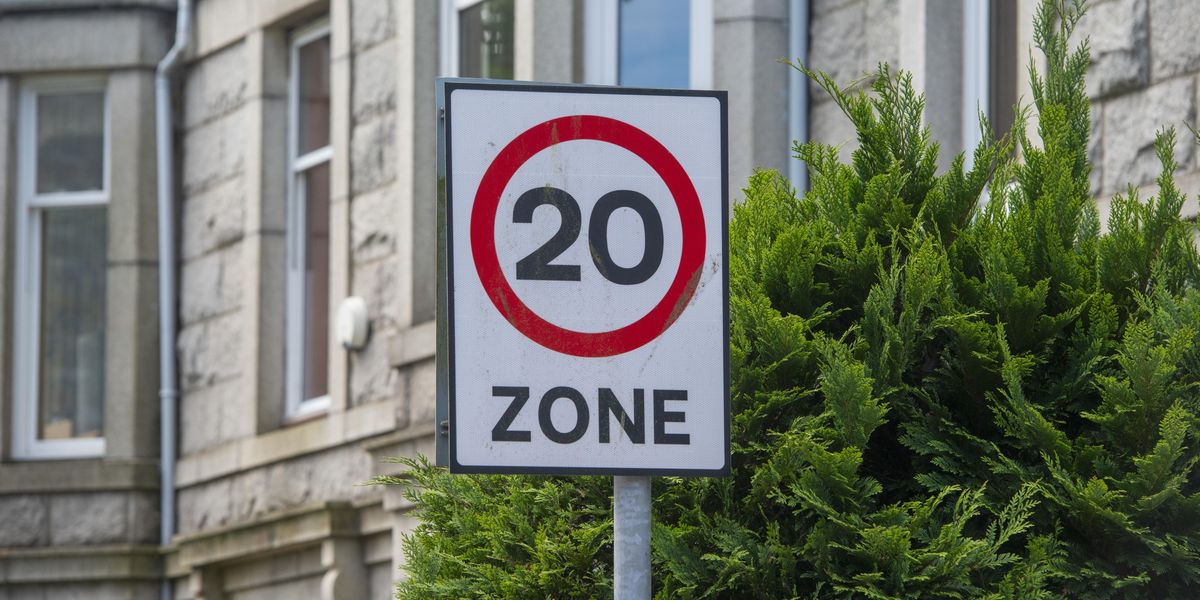Drivers have been urged to back nationwide adoption of 20mph limits which can help improve road safety for millions after experts pointed to the success in Wales as a benchmark.
It comes after new data revealed that roads in Wales saw a dramatic 28 per cent reduction in casualties since the introduction of 20mph speed limits, prompting calls for nationwide adoption of the scheme.
The Welsh figures found 100 fewer people were killed or seriously injured on 20mph and 30mph roads compared with the same period the previous year.
The significant drop in casualties has led to fresh calls for the safety measure to be implemented across the whole of the UK, with road safety organisations backing wider use of 20mph zones.
Do you have a story you’d like to share? Get in touch by emailing[email protected]
Peter Golding, managing director of FleetCheck, told FleetNews: “These are apparently the lowest Q3 figures for road accidents involving injury ever seen in Wales – about a fifth less than the previous year.
“While it is fair to suggest more experience is needed to find out whether this pattern is sustained, results of this type suggest that lower limits are having a dramatic effect on casualties.
“Organisations such as Brake and Cycling UK are backing the call for wider use of 20mph zones and the question is whether the fleet sector should do the same? It’s arguable that there is not just a moral imperative to do so but that it is very much in the spirit of the driving at work risk management culture.”
But feedback from drivers and fleet operators about lower speed limits has been mixed, with some viewing the limits as hampering efficiency, while others are more accepting and recognise the safety benefits.
Golding added: “Drivers of cars and vans who make multi-stop journeys in urban areas are often resistant to 20mph zones because they are going from appointment to appointment in difficult traffic conditions and the lower limit just feels very slow.”
He noted how delivery companies might need to reduce their number of drops due to the lower speed limits, suggesting more research into Welsh businesses’ experiences would be valuable.
Despite concerns from some fleet operators, Golding did state the potential for significant nationwide benefits if similar measures were adopted across the UK.
Scotland, for example has already started looking at implementing 20mph limits across the country. Aberdeen approved the traffic order last week which would see streets in the north part of the city restricted to 20mph.
The move hopes to help Scotland’s plans to have the best road safety in the world by 2030 and have no one seriously injured or killed on roads by 2050.
Transport Scotland added: “Managing the levels of vehicle speed is one of the biggest challenges faced in road safety. Many drivers do not recognise the risks involved with speeding and often, for them, the perceived advantages outweigh the perceived problems that can result from it.
“The speed of a vehicle directly influences the risk of a collision as well as the severity of injuries sustained, and the likelihood of death resulting from that collision. We know, the average person, is seven times more likely to die if they are hit with a vehicle at 30 mph than they are at 20 mph.
“That is why the Scottish Government is committed to implementing 20 mph speed limits on those roads where it is appropriate to do so by the end of 2025.”
LATEST DEVELOPMENTS:
Meanwhile, Highland Council launched lower speed limits in January explaining that while 20mph limits were originally reserved around schools and self-enclosed residential areas, “over time, experience has meant a shift to a wider rollout as they result in greater compliance due to less confusion over speed limits”.










